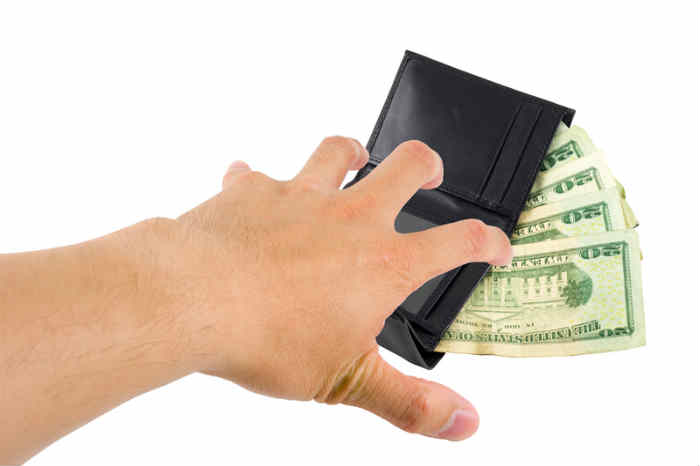











Kleptomania is a relatively rare mental health disorder characterized by the recurring inability to resist stealing. People with this condition have experienced repeated, unsuccessful attempts to quit stealing. The urges and actions taken are not based on financial or monetary need. In other words, items that are stolen are not needed, have no monetary value attached, or the individuals may even be able to afford them. It is understood that the process of stealing relieves an emotional tension experienced by individuals with kleptomania.

It is a complex disorder that can result in significant legal ramifications, with individuals often facing arrest, court trial, and even incarceration due to their actions.
Stealing is illegal and is considered theft despite the intent; however, there is a distinction between typical shoplifting and kleptomania. Shoplifters commonly plan out their thefts and focus on stealing specific things they want yet cannot afford financially. While they are generally aware of staying away from high risk situations in which they are certainly to get caught, people with kleptomania often steal spontaneously to resist an irresistible impulse that is building. Items stolen are often discarded or not used. It tends to be an impetuous reaction to internal anxiety they hope to get relieved by the stealing behaviors. These individuals will typically feel depressed, regret, and guilt about the thefts afterwards.
Kleptomania is uncommon, with estimates shown that 0.3 to 0.6 percent of people experiencing these symptoms. Onset is often in adolescence and the condition is more common in females than males.
The diagnosis of kleptomania requires repeated failures to resist the impulse to steal. The DSM-5 criteria for a kleptomania diagnosis are the following:
Kleptomania can often involve a dual diagnosis. Individuals often experience anxiety and are at risk for substance use and abuse. Disorders involving panic, mood, obsessive-compulsive, and impulse control problems can also co-occur. It has been estimated that 59 percent of people with kleptomania have also been diagnosed with a mood disorder some time in their lives. Approximately 43 to 55 percent of diagnosed individuals experience Axis II personality disorders as well.
The exact cause for kleptomania is uncertain and unproven; yet, there are hypotheses about what contributes to these patterns. As with many mental health disorders, it is suggested that both genetic and environmental influences are at play. According to biological models, the stealing behaviors are linked to certain areas of the brain and neurotransmitter dysregulation. Some studies connect frontal lobe damage can lead to some kleptomania symptoms. Behavioral theories suggest that the pattern of stealing behaviors to reduce internal symptoms of tension and anxiety become strongly reinforced over time and subsequently, difficult to break. It becomes an obsessive-compulsive like pattern where they become unable to resist the impulse to steal. Environmental factors such as emotional trauma or loss can contribute to kleptomania developing.
Given these complexities, treatment methodology can be complicated. It can involve a variety of interventions including: counseling, behavioral modification, group therapy, and medication.
Because of the secrets and shame involved in kleptomania, it often goes unreported or undetected until individuals are faced with legal implications. Individuals often avoid seeking treatment because they are embarrassed and ashamed of the behaviors, and unlikely understand the dynamics behind these patterns. If you suspect that you or someone you know is experiencing symptoms of kleptomania, seek help from a mental health professional for treatment advisement. There is hope for treatment to help individuals find relief from this condition and the distress it causes.